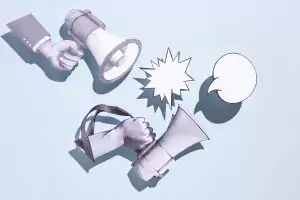
✅ AI Essay Writer ✅ AI Detector ✅ Plagchecker ✅ Paraphraser
✅ Summarizer ✅ Citation Generator
Hi everyone!
What I enjoy the most about writing novels—apart from the moment when I finish the last sentence of a draft—is editing. Writing in general is like sculpturing: first you take a solid rock, and then slowly turn it into a statue. The same is true for novels, stories, and so on—first you need a rock (a draft) to turn into a statue (the final copy). Editing itself is like carving and polishing; however, there are some dangers that may await an amateur or an unskilled editor. They may seem to be a right thing to do, but should be avoided by all means. Here are some of them:
- A temptation to get rid of all adjectives and make the text minimalistic.
- On the contrary, a temptation to saturate your writing with adjectives and adverbs.
- Deus Ex Machina.
- More backstory!
- Leaving things as they are.
I know it might sound a bit strange—like, why would someone want to cut out words that make writing more vivid—but I myself had this itch several times and I know it can be tempting. You suddenly develop this strange idea to make your writing clean and minimalistic.
This one may strike you when you decide your writing lacks details, or emotions, or whatever else. Therefore, you scatter a heap of adjectives here and there, and start believing they make your writing better. Relax, they don’t.
Sometimes when rereading your story, you may notice inconsistencies, logical fallacies, and so on—and rather significant ones. Since eliminating them often means rewriting huge chunks of text, you might get a brilliant idea to instantly insert a character who would solve the problem for you. Like when your protagonist is in danger and has no ways to escape, there suddenly descends a superman and saves him. Nonsense. Your readers will not appreciate this approach.
When you feel like your story lacks details, you may get little over-the-top and stuff your readers with tons of biographies, historical remarks, lengthy explanations, and so on. This can be acceptable sometimes, but most of the time, you should be careful with backstories—sometimes one exact sentence works better than two pages of explanations about why things in your story are this or that way.
This one also rises from laziness, or from a strange belief that since you’ve written a whole book, editing is something secondary and not necessary. Nope. Editing is necessary and crucial. When you finish writing, put your novel aside for a couple of weeks (the longest term I had was two months) and then look at it with fresh eyes. You will be terrified.
I hope this strain of advice will help you edit more effectively. Good luck!
Follow us on Reddit for more insights and updates.




Comments (0)
Welcome to A*Help comments!
We’re all about debate and discussion at A*Help.
We value the diverse opinions of users, so you may find points of view that you don’t agree with. And that’s cool. However, there are certain things we’re not OK with: attempts to manipulate our data in any way, for example, or the posting of discriminative, offensive, hateful, or disparaging material.